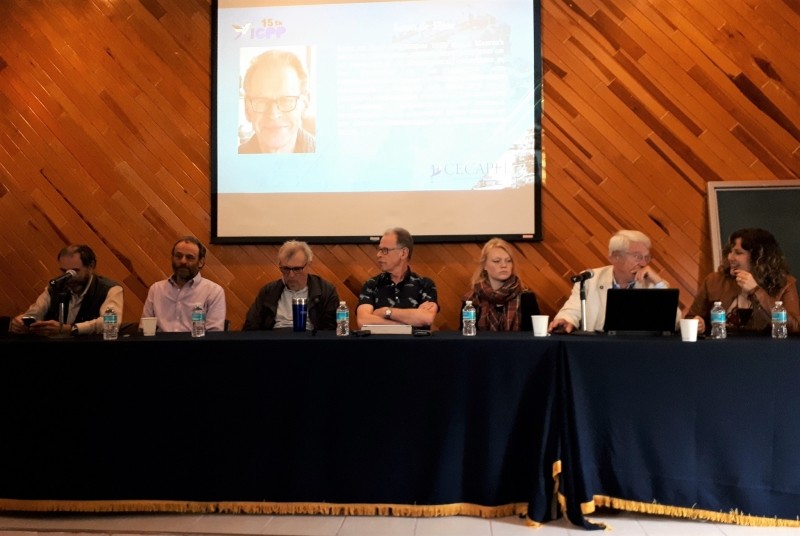I have just returned home from Mexico City, from the 15th International Conference of Philosophical Practice. The conference was superbly organized by David Sumiacher and Paulina Ramirez, and we all had a good time. It was nice to meet old friends and to converse with fellow philosophical practitioners.
I was struck by the great variety of approaches. Philosophical practice is definitely not one thing, but a rich family of approaches – and as in every family, some cousins have very little similarity to each other. In fact, we were sometimes so different from each other, that we did not even agree on what counts as “philosophical” practice.
So what is “philosophical” practice? What kind of activity can count as philosophical, and what does not count as philosophical? Let me report here about several answers which were voiced in Mexico City.
One answer, proposed by Gerd Achenbach, is that philosophy deals with issues that are the most important and basic to the individual. Philosophy encourages us to reflect on these issues, without imposing on them methods and answers. Thus, philosophy is expressed not so much by WHAT you say, but by how you relate to the individual’s basic issues.
A second answer, which I heard from several different directions, is that philosophy is a discourse of logical analysis, or critical thinking. For example, if you help to analyze a counselee’s problem with logical thinking tools, you are doing philosophy. A related approach is that philosophy develops skills of rational thinking. Thus, if I give you an exercise that helps you think more rationally, then I am doing philosophy.
A third answer, presented by me and my colleagues, is that philosophy is a historical tradition, which includes certain thinkers whom we call “philosophers.” All those thinkers, without exception, did one thing in common: they discussed general and fundamental issues of life (or reality). Furthermore, they all addressed these issues by building theories, or network of ideas. And they used a variety of thinking tools, from logical analysis to intuition, from introspection to contemplation. This means, I suggest, that you are doing philosophy only if you relate to the philosophical tradition, and only if you discuss a general life-issue and try to compose a network of ideas (or theory) about it.
These three answers are very different from each other. What counts as philosophy under one definition is not philosophy at all under another definition. Thus, helping Maria to analyze her relationship with her mother may be philosophy under Definition 2 but not under Definition 3.
I would like to suggest a way to resolve these disagreements. It seems to me obvious that Definition 3 is correct – just look at the history of philosophy and you will realize that the philosophical discourse is not about Maria’s problem with her mother, or about teaching Linda to think critically. These two activities are obviously not part of the historical discourse that is called philosophy, which took place among the great thinkers who are called philosophers.
But this does not mean that these activities are unimportant. After all, philosophy is not the only good thing in life. If a practitioner helps individuals to solve their personal issues, or to think more rationally, then that’s wonderful, whether or not it is a philosophical discourse.
So what are these activities if they are not a philosophical discourse? How shall we call them?
Well, even though they are not a philosophical discourse, nevertheless they are not completely disconnected from philosophy. They are INSPIRED BY philosophy, and they often use certain elements from philosophical discussions. For example, so-called “philosophical counseling” is very often psychological counseling with certain philosophical elements. Let us, therefore, call this activity precisely what it is: PHILOSOPHY-INSPIRED COUNSELING (or philosophy-inspired workshops, exercises, etc.).
And thus, the controversy about the exact boundaries of philosophical practice is resolved. Philosophical practice, I suggest, is not necessarily philosophy. It is inspired by philosophy, it often uses elements from philosophical, but in itself it is not necessarily a philosophical activity. True, we must admit that philosophy-inspired activities are often not philosophy – but so what? This does not make them less valuable, and it does not bring them into conflict with each other.
Personally, I acknowledge that many of the activities presented in Mexico are very valuable. But please, let us not call “philosophy” what is obviously very different from the philosophy which philosophers throughout history have been doing.
